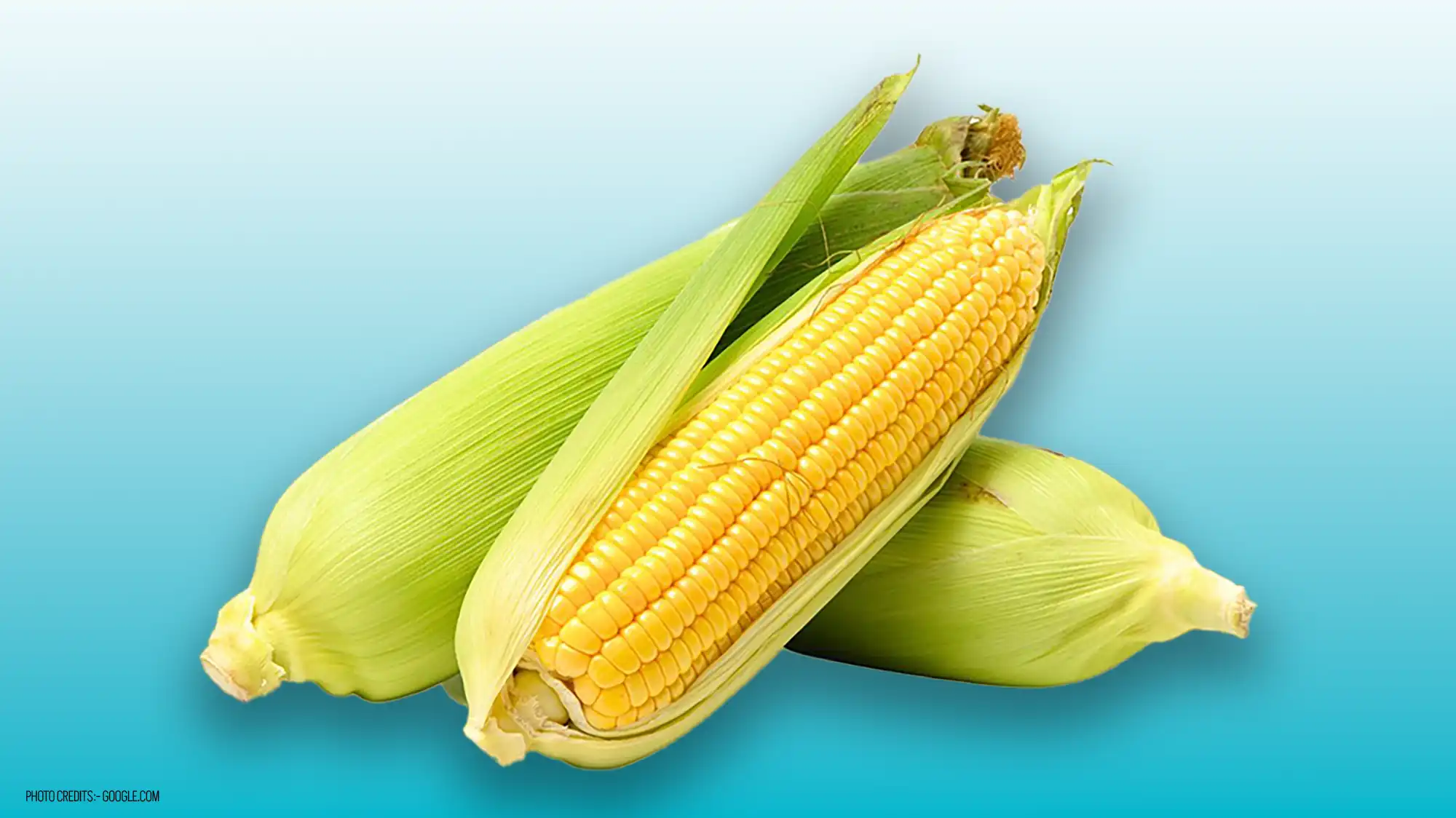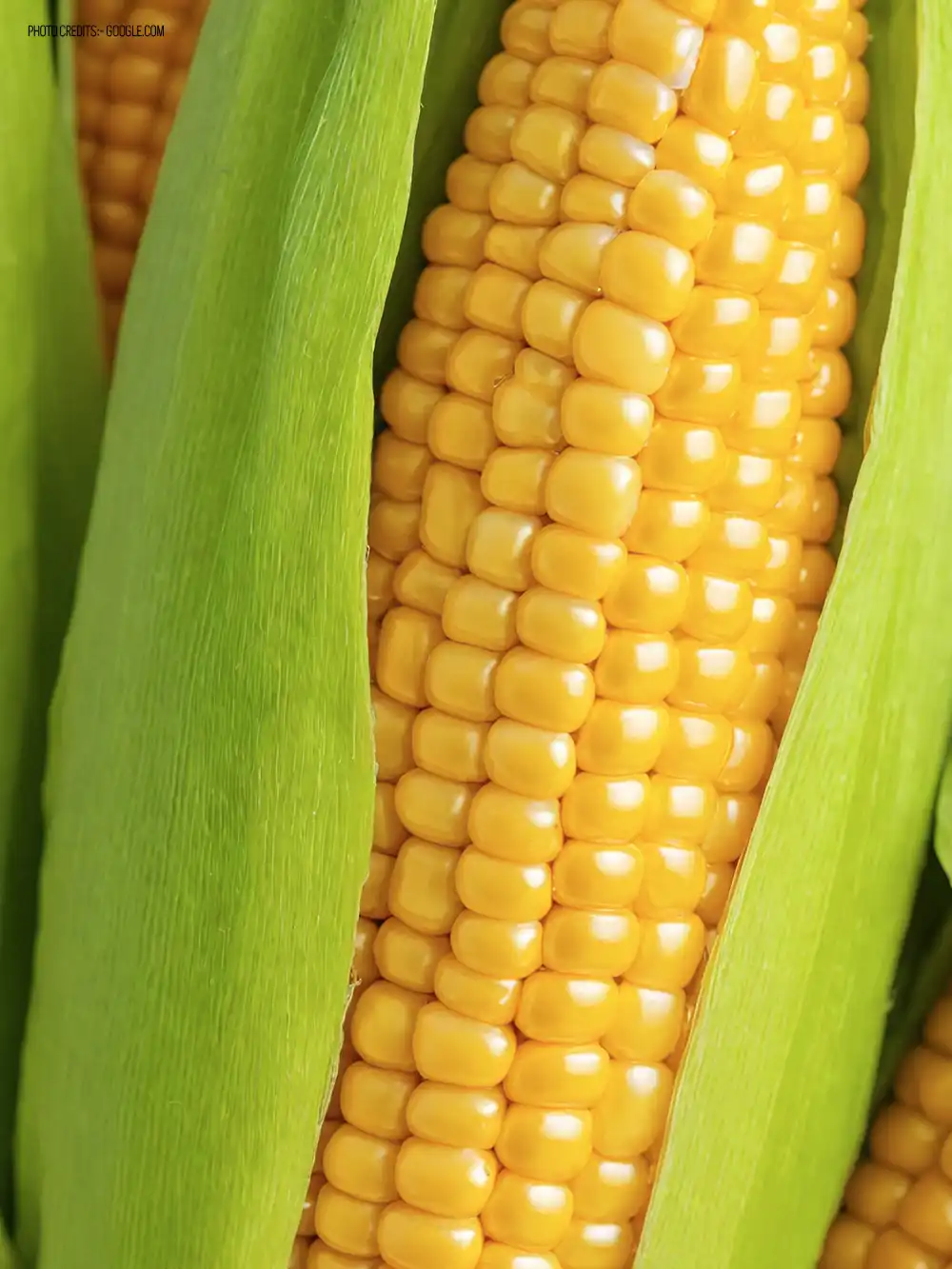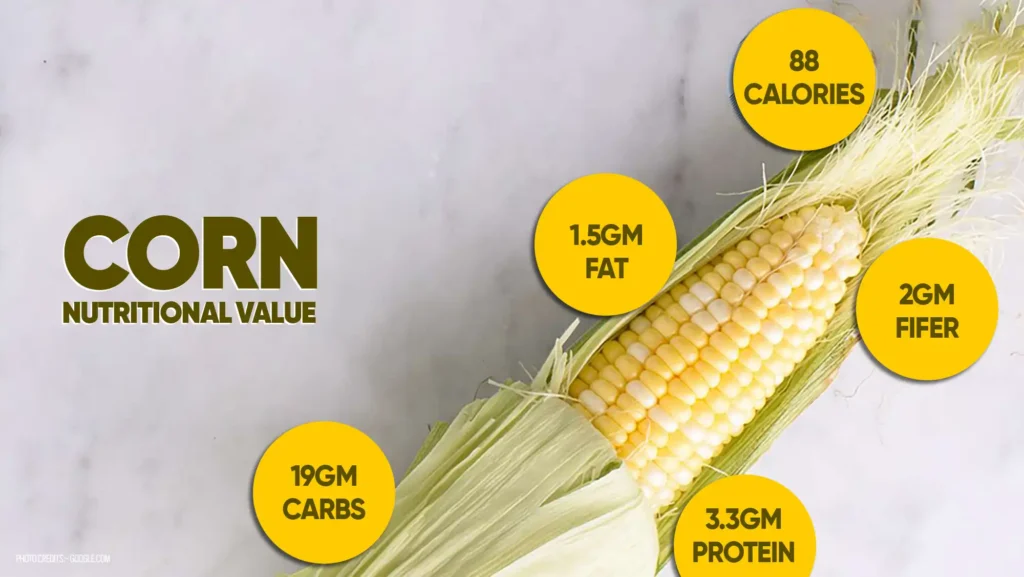Explore different types of corn like sweet corn, popcorn, and blue corn, along with their unique benefits. Understand how to incorporate corn into your diet for weight management and overall well-being. This article also covers potential downsides and tips for maximizing corn’s health advantages. Perfect for anyone seeking to enjoy the many benefits of this versatile and nutrient-packed food.
Does Corn Have Nutritional Value:
Yes, corn has considerable nutritional value, making it a versatile and beneficial addition to your diet when consumed in moderation. As a staple food worldwide, corn is rich in carbohydrates, vitamins, minerals, and antioxidants, offering various health benefits. Whether it’s sweet corn, popcorn, or cornmeal, this grain serves as a nutritional powerhouse, suitable for numerous diets and cuisines.
Corn, also known as maize (Zea mays), is one of the world’s most cultivated crops, consumed in diverse forms and appreciated for its taste, versatility, and health benefits. Beyond its role as a delicious snack or side dish, corn provides essential nutrients that support energy metabolism, digestive health, and overall well-being. Understanding the unique nutritional profile of corn can help you make informed decisions about including it in your diet.
Nutritional Composition of Corn:
Corn is packed with nutrients, making it a valuable food source for millions worldwide. Its nutritional profile includes a combination of macronutrients, vitamins, minerals, and phytonutrients that work together to support various aspects of health.
Macronutrients: Corn primarily consists of carbohydrates, providing an excellent source of energy. A typical ear of corn (about 90 grams) contains.
- Calories: Around 90
- Carbohydrates: Approximately 19 grams
- Protein: Roughly 3 grams
- Fat: Less than 1 gram
While it is naturally low in fat, the carbohydrate content makes it a quick energy booster. The moderate protein levels in corn, while not as high as those in legumes or meat, still contribute to muscle maintenance and cellular repair.
Micronutrients: Corn is a rich source of essential vitamins and minerals, including.
- Vitamin B6: Aids in energy metabolism and red blood cell production.
- Folate: Essential for DNA synthesis and fetal development during pregnancy.
- Magnesium: Supports muscle and nerve function and helps maintain bone strength.
- Potassium: Helps regulate fluid balance and blood pressure.
These nutrients make corn more than just a starchy food; they turn it into a nutrient-dense addition to your plate.
Corn as a Source of Antioxidants:
Corn is rich in antioxidants, which protect the body from oxidative stress caused by free radicals. Oxidative stress can lead to chronic conditions like heart disease, diabetes, and cancer.
Key Antioxidants in Corn:
Lutein and Zeaxanthin: These carotenoids are especially abundant in yellow corn varieties and are vital for eye health. They protect the retina from harmful UV rays and reduce the risk of age-related macular degeneration (AMD).
Ferulic Acid: Found in the outer layers of corn kernels, ferulic acid has strong anti-inflammatory and anti-aging properties.
Anthocyanins: Present in blue and purple corn, these antioxidants are known for their anti-inflammatory and anti-cancer effects.
Including antioxidant-rich foods like corn in your diet can help bolster your body’s defense mechanisms and promote long-term health.

Is Corn a Good Source of Fiber:
Yes, corn is an excellent source of dietary fiber, especially when consumed in its whole form, such as corn kernels or popcorn. Fiber is essential for maintaining a healthy digestive system, and corn provides about 2 grams of fiber per 100 grams.
Benefits of Fiber in Corn:
- Supports Digestion: Fiber helps prevent constipation by promoting regular bowel movements.
- Aids in Weight Management: High-fiber foods like corn can make you feel fuller for longer, reducing overall calorie intake.
- Lowers Cholesterol Levels: Soluble fiber in corn binds to cholesterol, helping to remove it from the body and reduce the risk of heart disease.
Popcorn, in particular, is a fiber-rich snack that is low in calories, making it an excellent option for those looking to maintain or lose weight. Opt for air-popped popcorn without added butter or salt to maximize its health benefits.
Does Corn Contain Protein:
Corn contains a moderate amount of protein, about 3 grams per 100 grams. While it is not a complete protein source (it lacks certain essential amino acids like lysine), it can be paired with other foods like beans, lentils, or dairy to create a balanced amino acid profile.
Benefits of Corn Protein:
The protein in corn, known as zein, plays a role in various functional food applications, though its biological value is lower than animal proteins. For vegetarians and vegans, corn serves as a complementary protein source when combined with other plant-based foods.
Types of Corn and Their Nutritional Profiles:
Corn is available in several varieties, each with unique nutritional benefits:
Sweet Corn: This is the most commonly consumed type, known for its natural sweetness and tender texture. Sweet corn is high in carbohydrates and vitamins like vitamin C, which boosts immunity and skin health.
Popcorn: Popcorn is a whole grain, rich in fiber and low in calories when prepared without added fats. It also contains polyphenols, antioxidants that contribute to heart health.
Field Corn: Primarily used for animal feed and processed foods, field corn is also the base ingredient for products like cornmeal and tortillas. It is rich in carbohydrates and offers a good source of energy.
Blue and Purple Corn: These varieties are gaining popularity due to their high levels of anthocyanins, antioxidants that provide anti-inflammatory benefits and support cardiovascular health.
Health Benefits of Corn:
Corn offers several health benefits when consumed as part of a balanced diet.
- Supports Eye Health: The carotenoids lutein and zeaxanthin protect the eyes from oxidative damage and reduce the risk of AMD.
- Boosts Energy Levels: The high carbohydrate content in corn makes it an excellent pre-workout snack, providing sustained energy.
- Aids in Digestion: The fiber in corn promotes gut health by feeding beneficial gut bacteria and preventing constipation.
- Enhances Skin Health: Vitamin C and antioxidants in corn contribute to collagen production, keeping the skin firm and youthful.
Corn in Weight Management:
Corn can be part of a healthy weight management plan due to its fiber content, which promotes satiety. However, moderation is key, as corn is calorie-dense compared to non-starchy vegetables.
Tips for Including Corn in a Weight-Loss Diet:
- Opt for boiled or grilled corn rather than fried or heavily buttered versions.
- Pair corn with lean proteins and vegetables for a balanced meal.
- Choose air-popped popcorn as a healthy snack alternative.
Potential Downsides of Corn:
While corn is nutritious, overconsumption or reliance on processed corn products can have drawbacks.
- High Glycemic Index: Corn has a moderate to high glycemic index, meaning it can cause blood sugar spikes, especially in people with diabetes.
- Allergic Reactions: Some individuals may have a corn allergy, leading to symptoms like hives, stomach pain, or anaphylaxis.
- Processed Corn Products: Corn-derived products like high-fructose corn syrup are stripped of nutrients and often high in added sugars.
Stick to whole or minimally processed corn to maximize its health benefits.
How to Incorporate Corn Into Your Diet:
Corn can be enjoyed in various ways.
- As a Side Dish: Boiled or grilled corn on the cob is a classic option.
- In Soups and Stews: Add corn kernels for flavor and texture.
- As a Snack: Choose plain popcorn for a healthy treat.
- In Baked Goods: Use cornmeal for cornbread or muffins.
Experimenting with different recipes can help you enjoy the versatility of corn while reaping its nutritional benefits.
FAQs about Does Corn Have Nutritional Value:
A1: Yes, corn is high in dietary fiber, which promotes healthy digestion, prevents constipation, and supports gut health.
A2: Corn is rich in carbohydrates, fiber, vitamins (like B6 and folate), and minerals (such as magnesium and potassium), making it a nutrient-dense food.
A3: Yes, corn can aid in weight management when consumed in moderation. Its fiber content promotes fullness, but avoid heavily processed or buttered corn options.

-Please remember, to always consult with healthcare professionals or Doctors for personalised advice related to medical conditions.
Conclusion:
Corn is a versatile and nutritious food that provides a wealth of health benefits when consumed in its natural, minimally processed forms. Does Corn Have Nutritional Value? Absolutely! Packed with carbohydrates, fiber, vitamins, minerals, and antioxidants, corn supports energy, digestion, and eye health. Its diverse varieties, from sweet corn to popcorn, offer unique benefits for different dietary preferences. While moderation is key to avoid potential downsides, incorporating corn into your meals can enhance your overall well-being. Whether grilled, boiled, or popped, corn is a wholesome and delicious addition to a balanced diet that satisfies both taste and nutritional needs.







